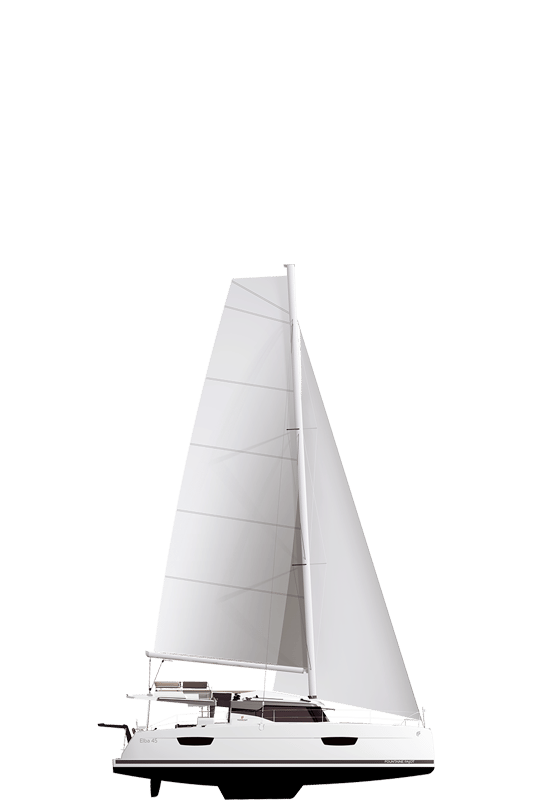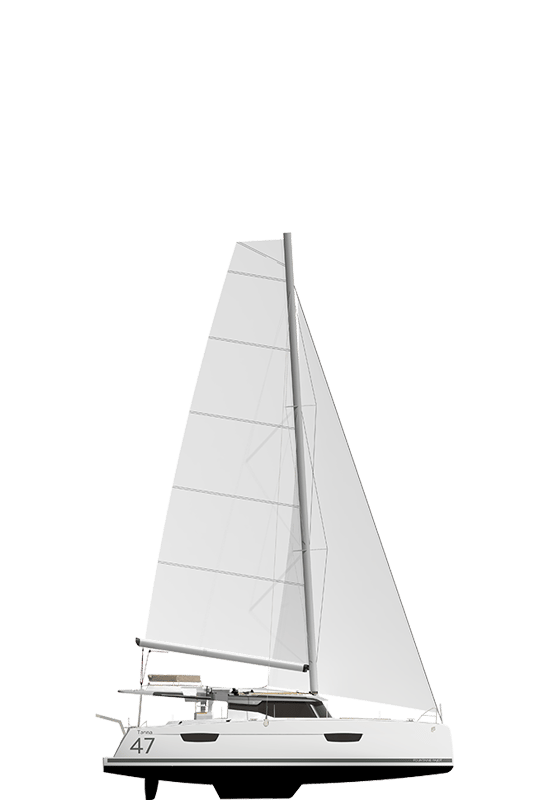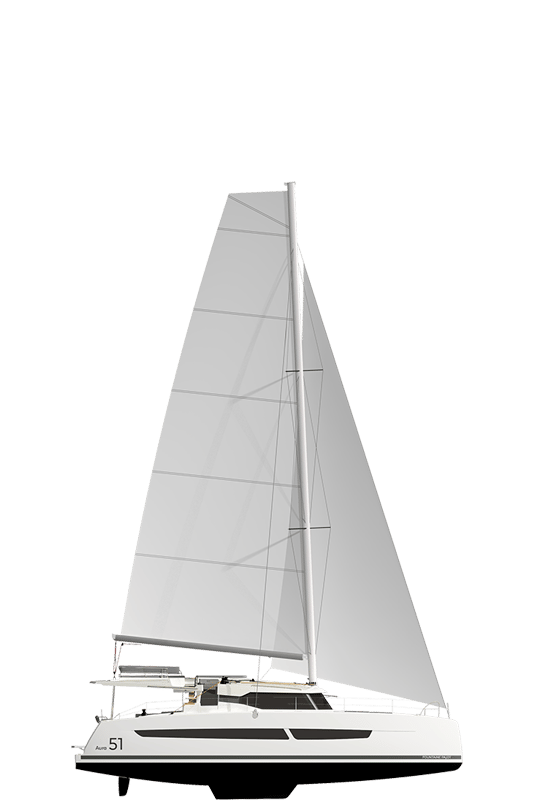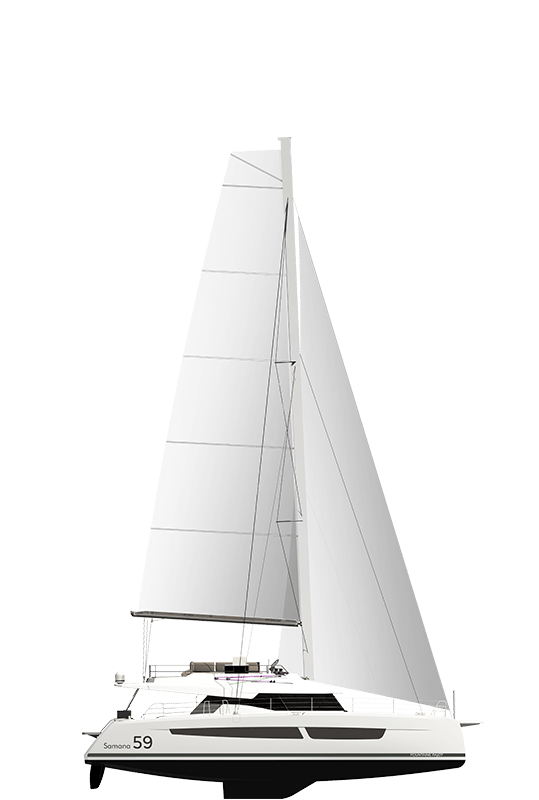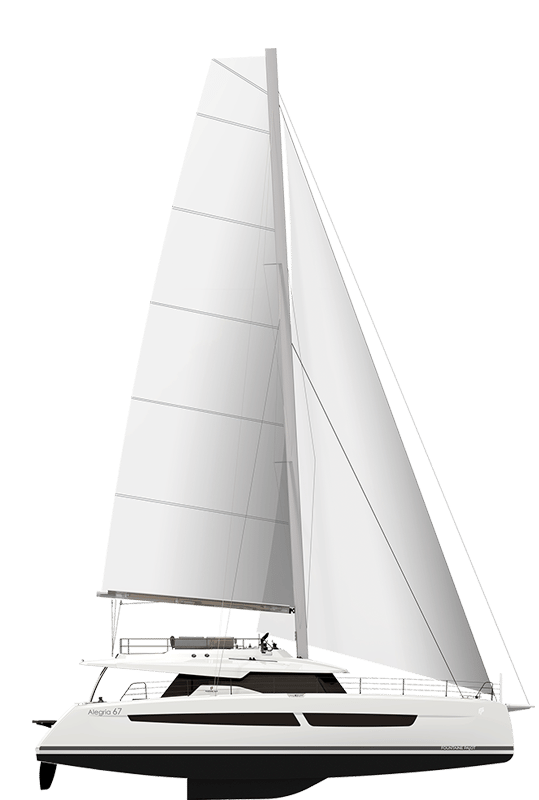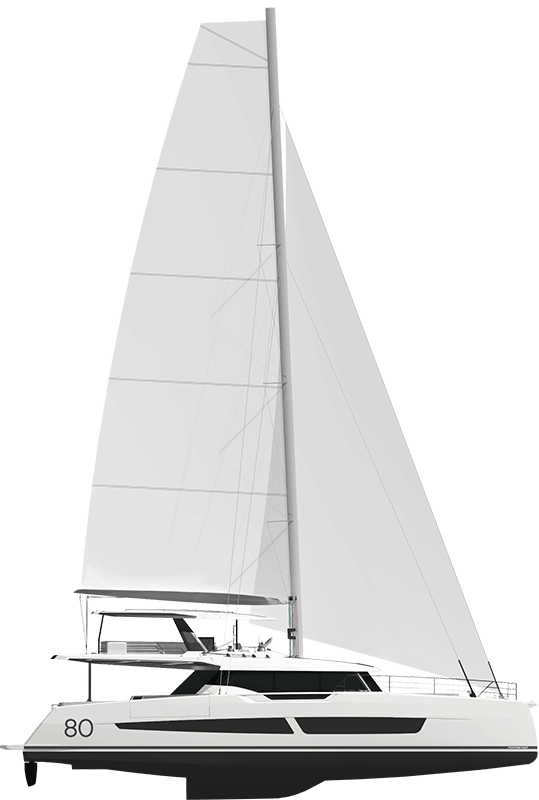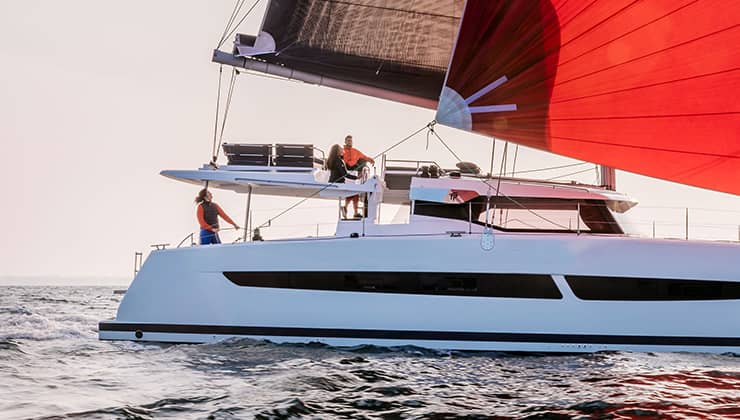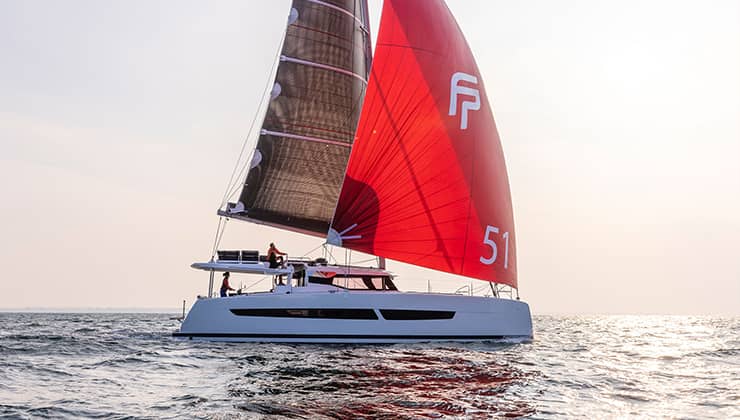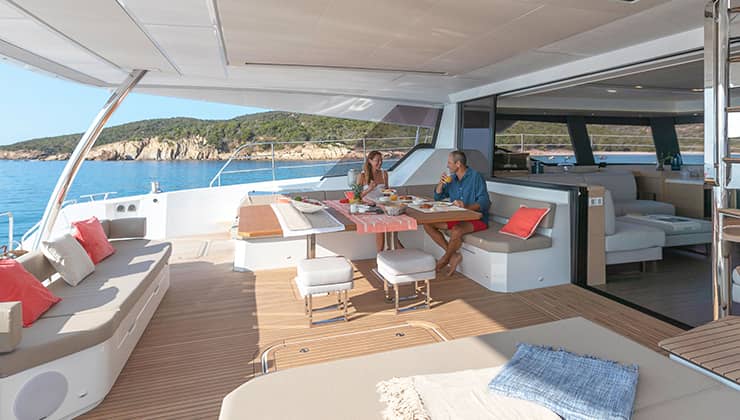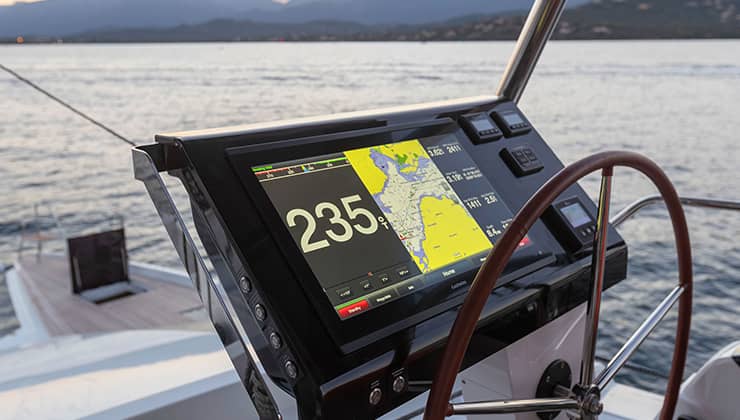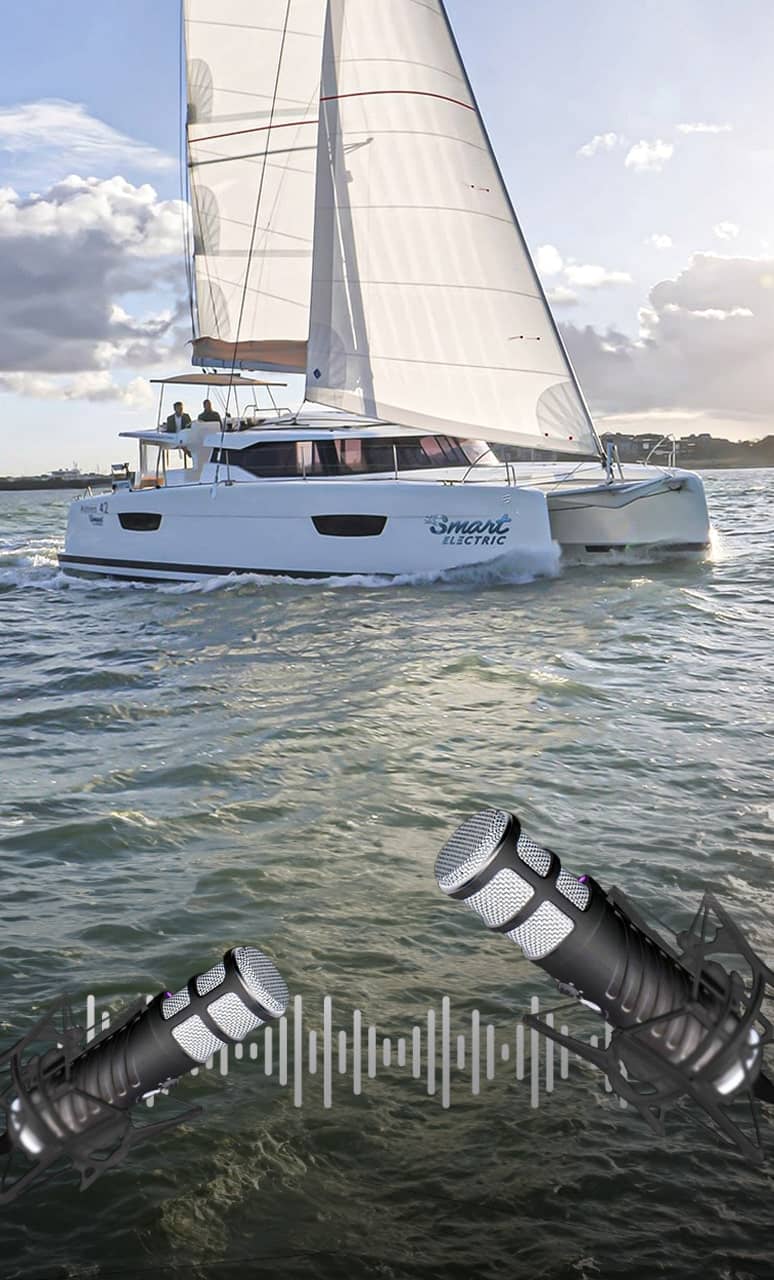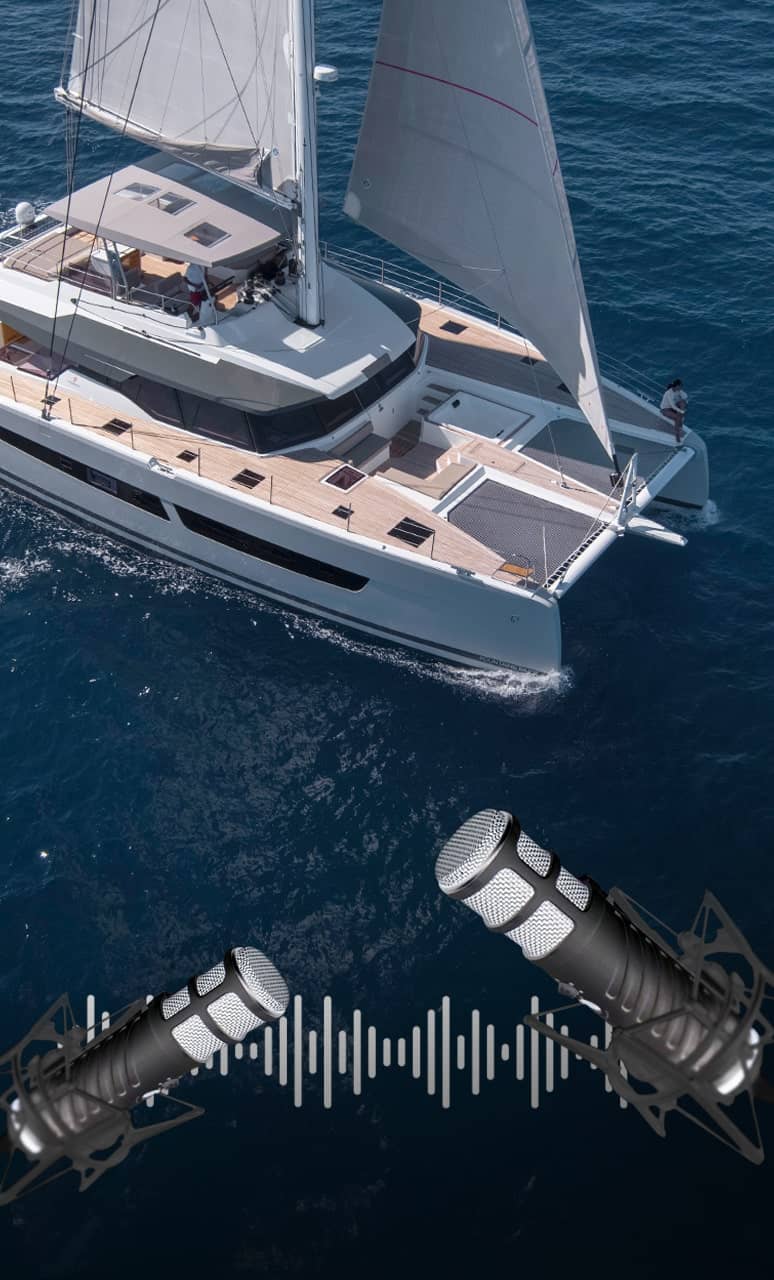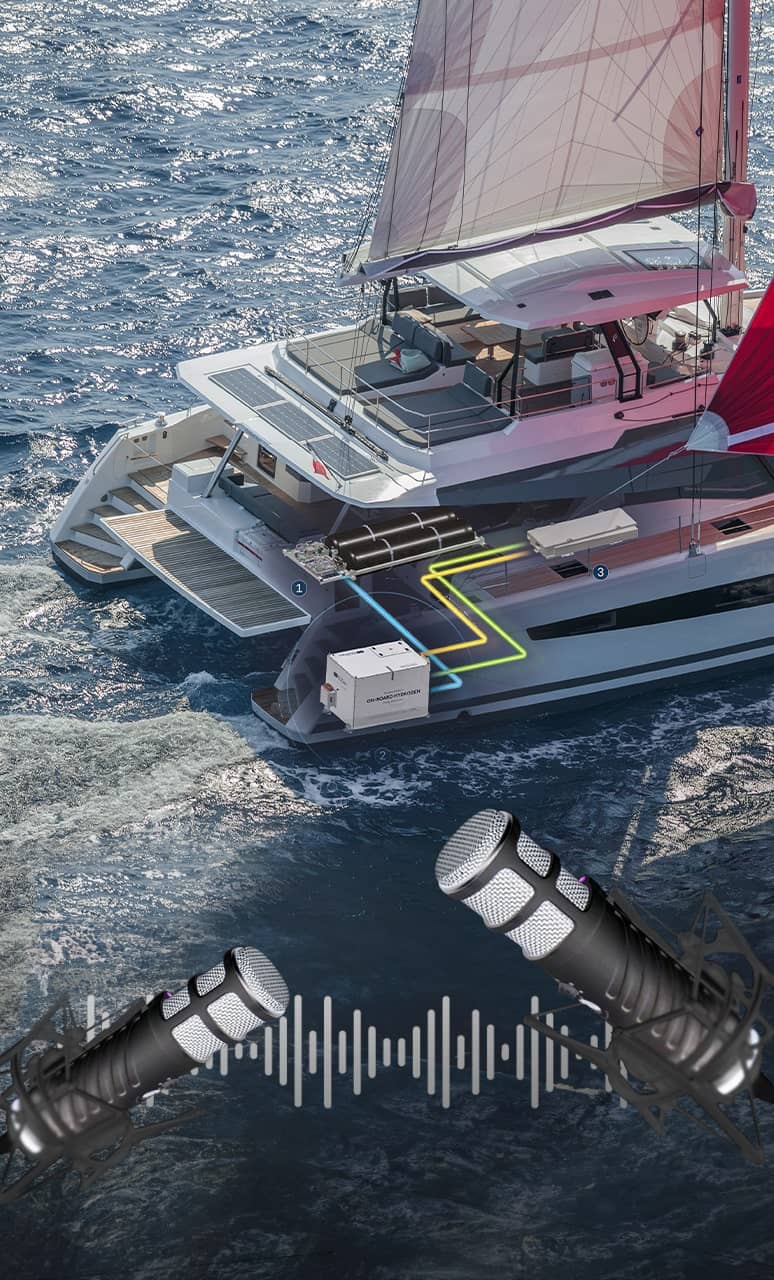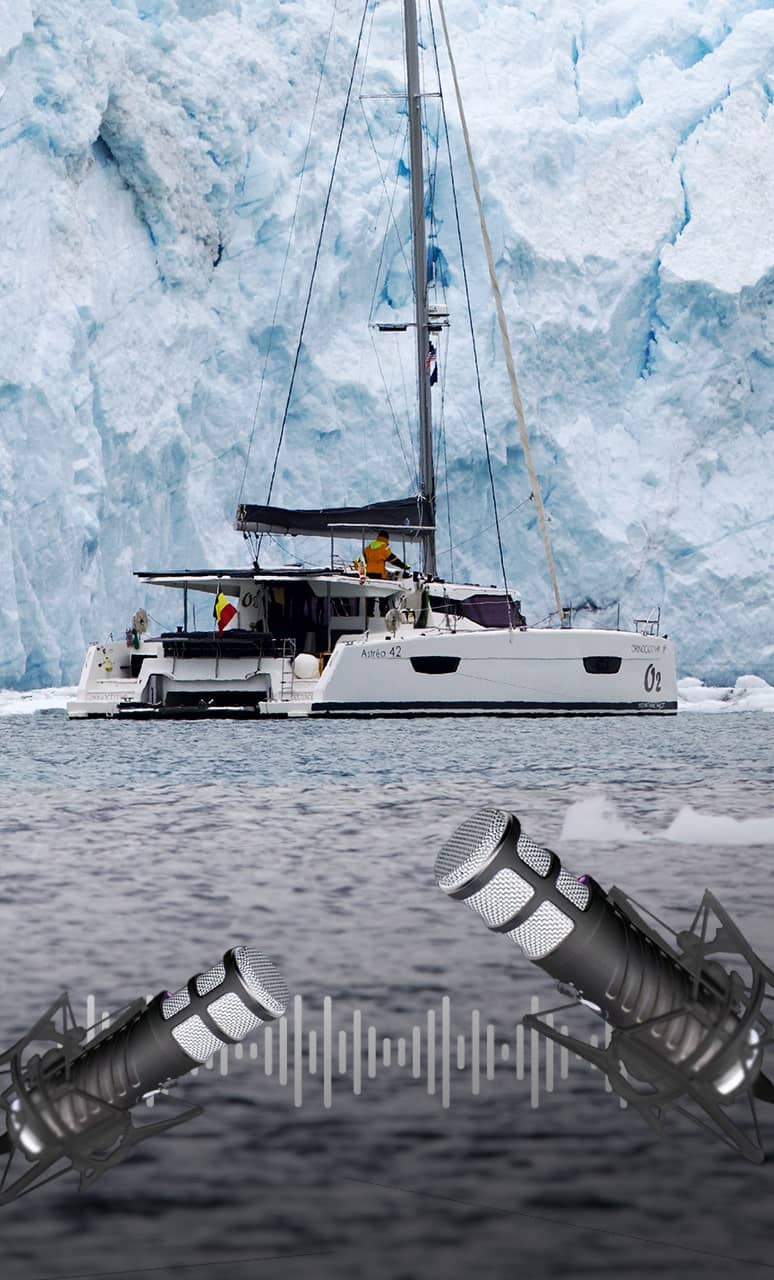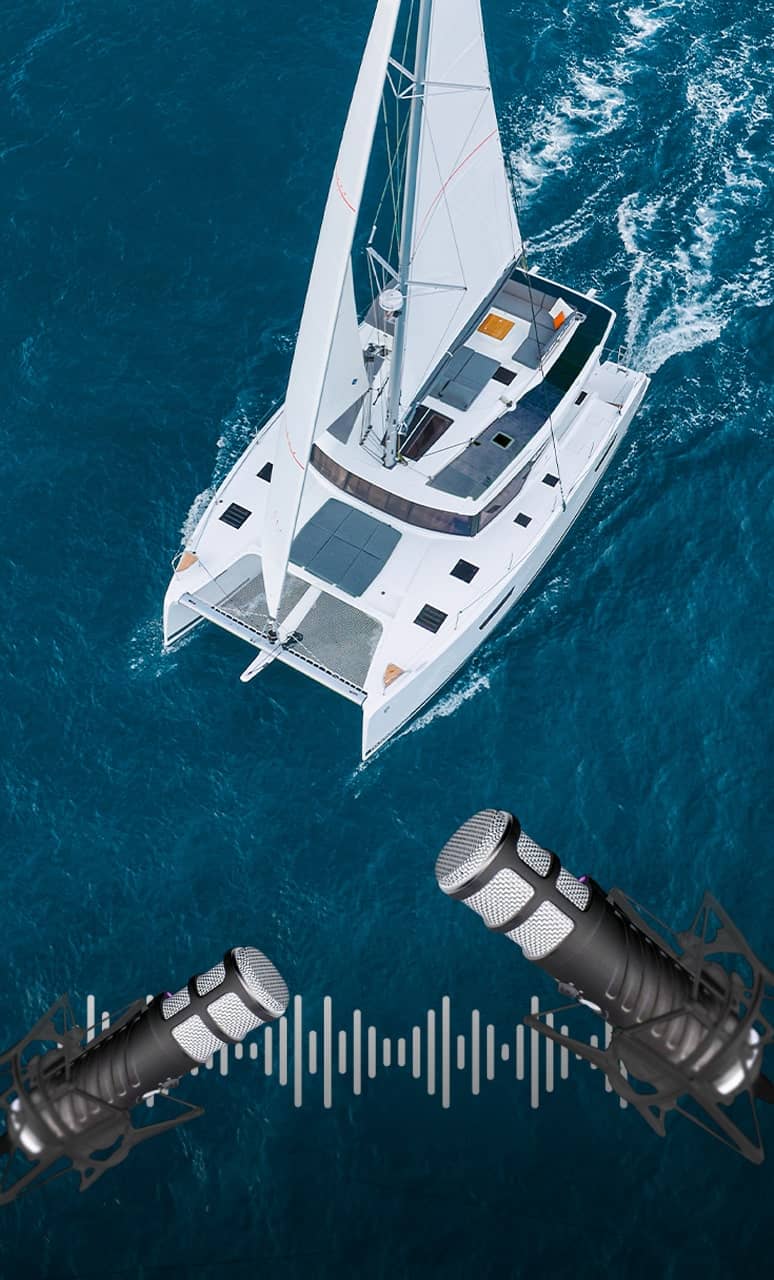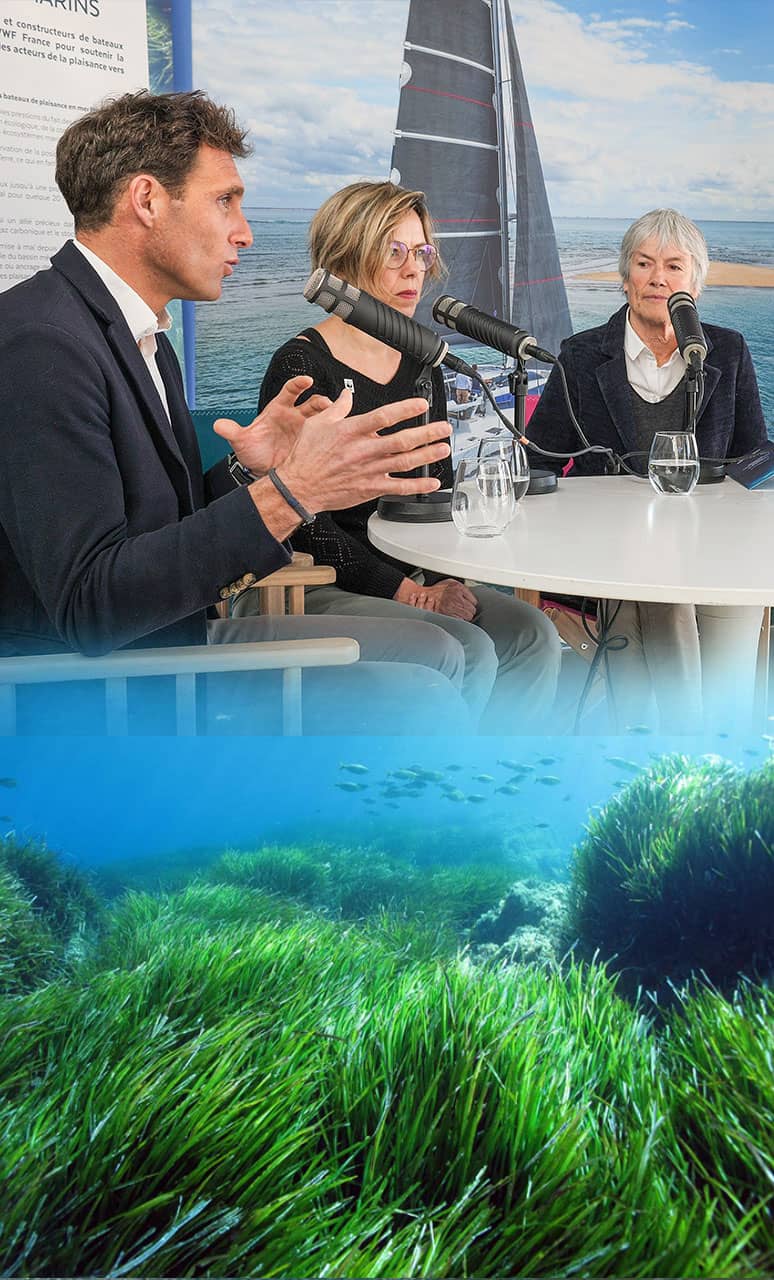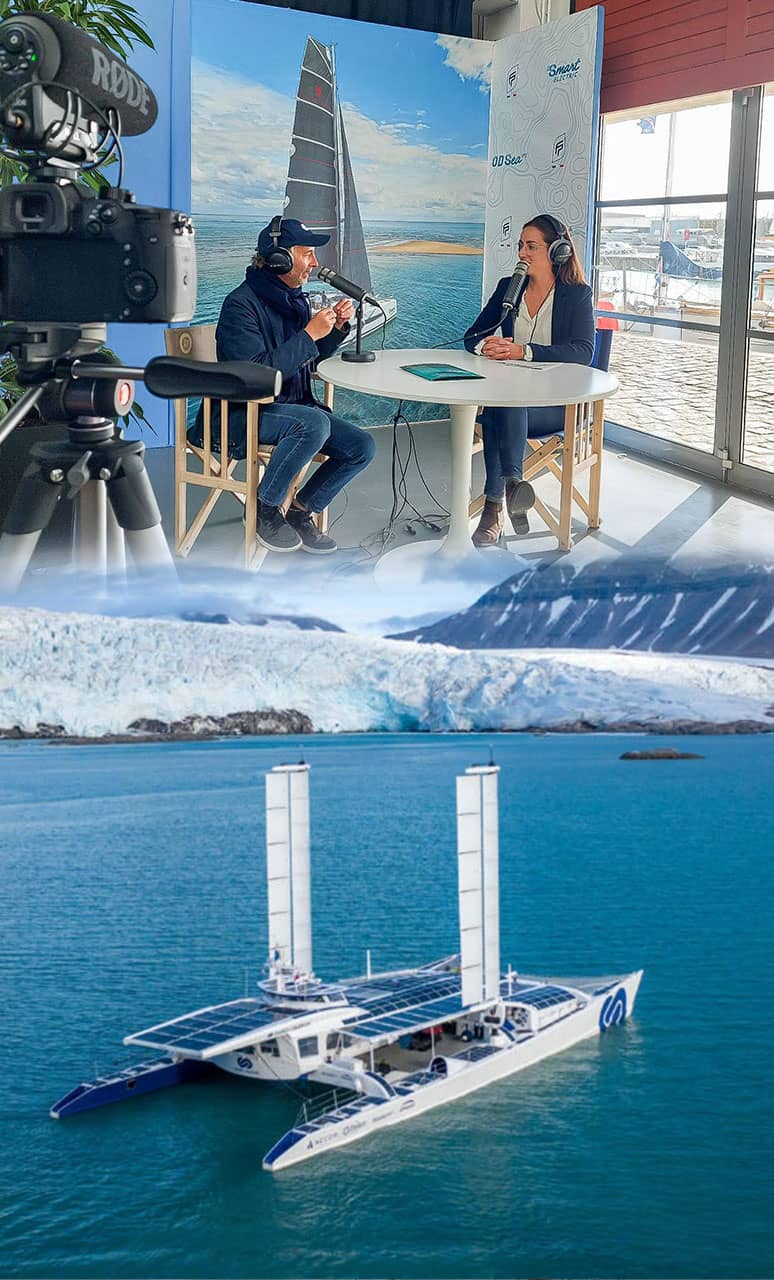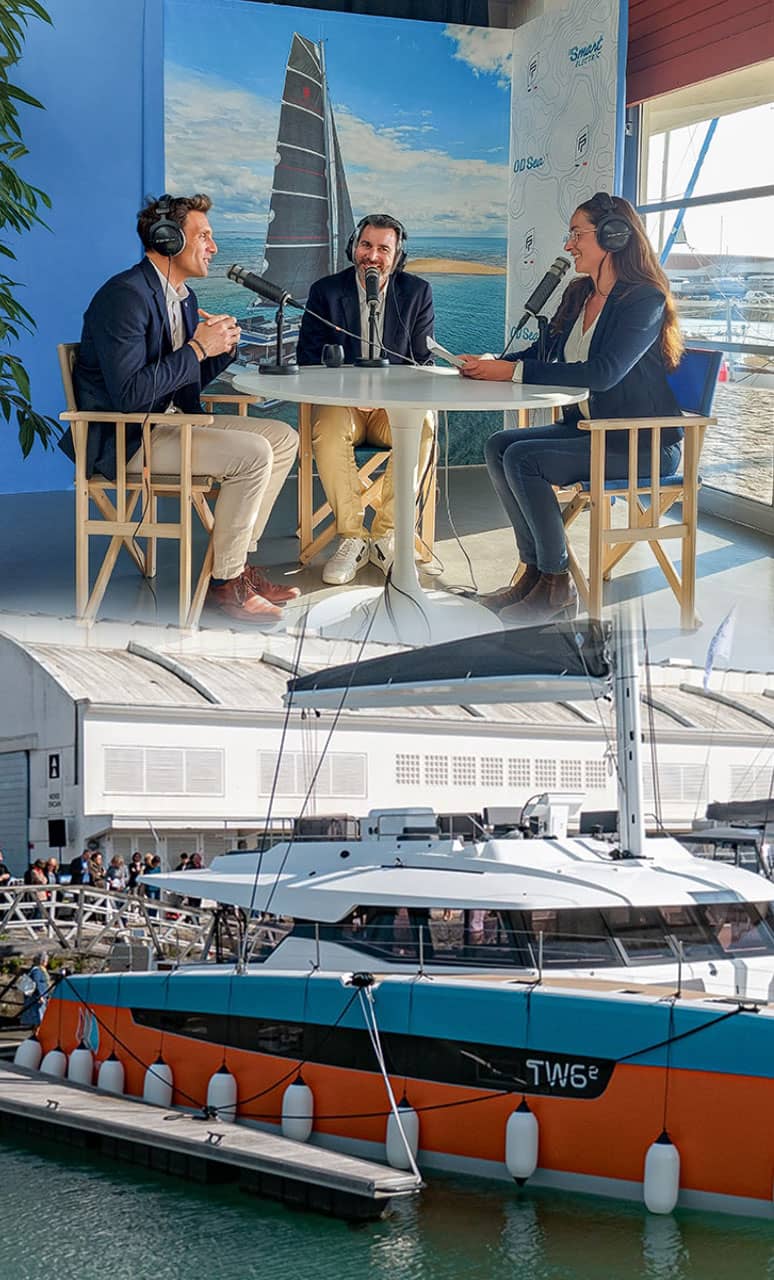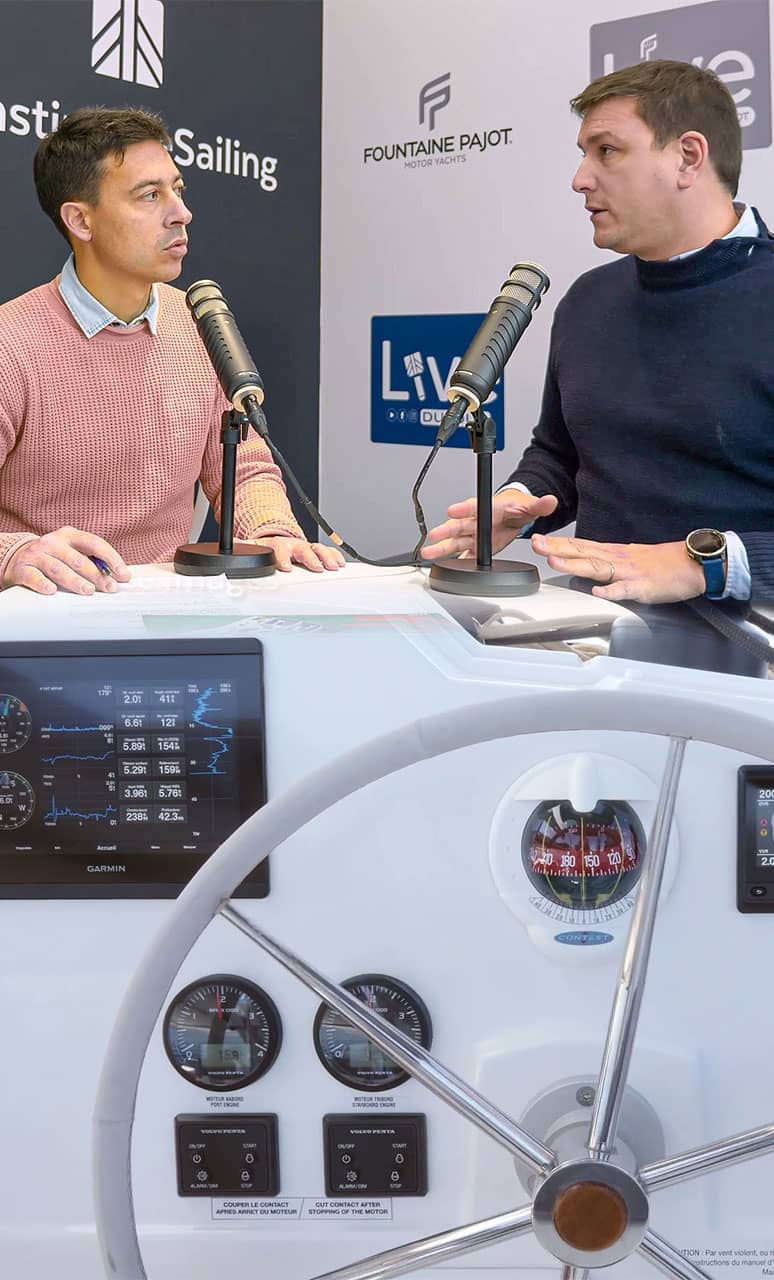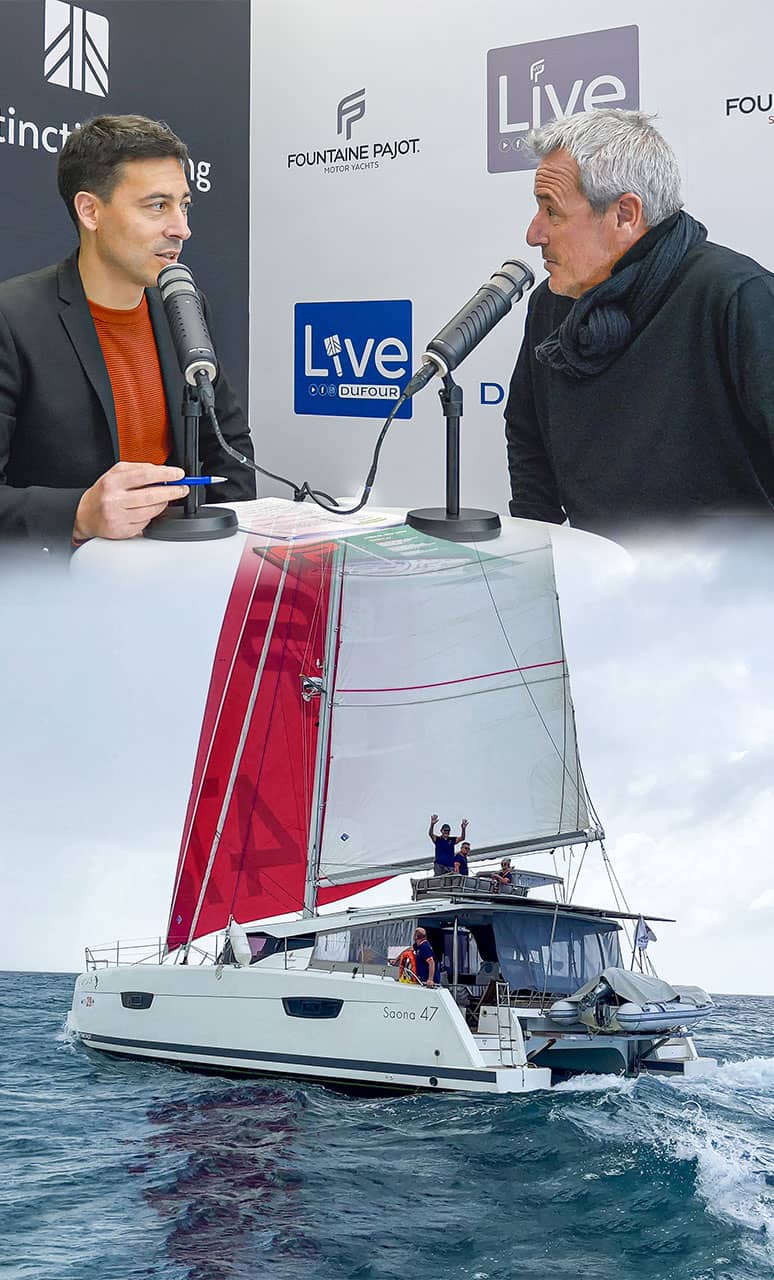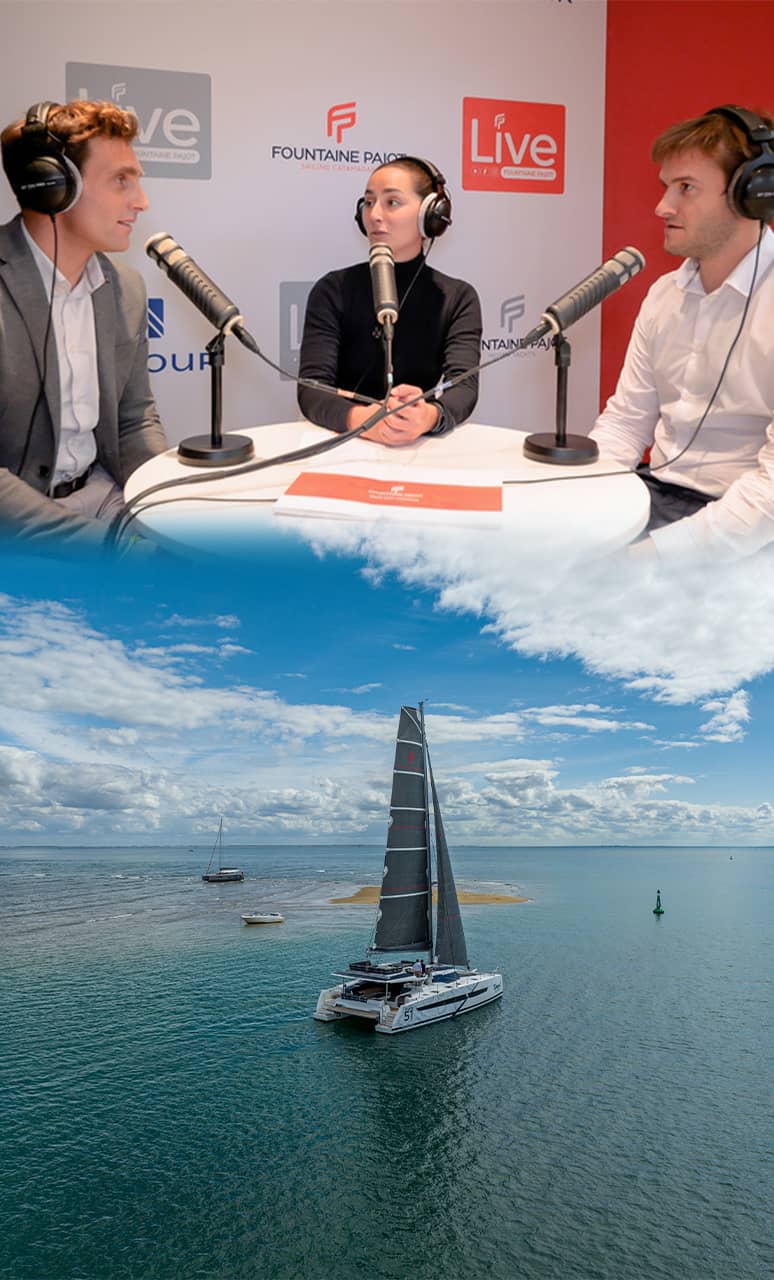Webcast
70+ years old, and a round-the-world trip aboard an Astréa 42
Event date
5 January 2023
Event location
Paris

#WEBCASTS FOUNTAINE PAJOT #PARIS
On the occasion of the Paris Boat Show which took place this December 2022, Fountaine Pajot welcomed Michel and Minouche, a couple of owners of an Astréa 42, who are realizing their dream: sailing around the world in 4 years. After 2 years of sailing, and halfway through their trip, these two courageous 70-year-olds share with us in this new podcast their adventures on board their catamaran. On the program: meeting with whales, volcanoes, and advice on how to choose the right boat!

70+ years old, and a round-the-world trip aboard an Astréa 42
9:42 min
More information about Minouche and Michel’s adventure on their blog: voile-aventure-monde.com
The Atlantic crossing, a cruise reserved for the initiated?
Crossing the Atlantic by sailboat is often considered to be an adventure reserved exclusively for the most initiated among us. However, with the increase in Atlantic crossings aboard cruising catamarans, this experience seems to be attracting more and more enthusiasts, although it may seem intimidating at first. Making a transatlantic crossing, like crossing the Pacific or the Indian Ocean, can be a very fascinating and enriching experience for travellers, even for novices. Especially since the means of navigation and catamarans have evolved in recent years, making crossings more accessible and safer, as well as sharing experiences on social networks, making it easier to prepare.
Unlike a more traditional cruise, crossing the Atlantic involves at least the skippers and their passengers in an adventure lasting several weeks. This offers travellers the possibility of an immersive and engaging experience, time to take full advantage of the boat’s marine qualities and the living spaces on board. And this is where sailing catamarans excel. With their two hulls, catamarans offer unparalleled sailing stability, a useful comfort for both skippers and passengers who can go about their business as well as anchoring. They also offer spacious living areas, to respect the intimacy of each person, but also to spend convivial moments in the saloon, the aft cockpit, or the flybridge depending on the version. Crossing the Atlantic is also an opportunity to stop over in exceptional places that are just waiting to be explored! The Canaries and Cape Verde come to mind, archipelagos lost in the ocean, with a temperate climate and still well preserved. A great opportunity to reconnect with nature and enjoy the beauty of the ocean…
If crossing the Atlantic is a project that interests you, but you are still hesitating, note that there are organised transatlantic races to accompany you on this adventure in complete safety, such as the “Rallye des Iles du Soleil“! The Rallye des Iles du Soleil is a regatta that takes place from France to Guadeloupe in the Caribbean, with stops in the Canaries and Cape Verde. It is a yachting rally for cruising yachts, known for its friendliness and camaraderie; participants come from all over the world, with varying levels of skill and experience.
Some tips on how to prepare for a transatlantic crossing (because yes, you have to be prepared for it!):
- Planning: Planning is the key to a successful crossing. It is important to plan your route, take into account the weather, winds and currents, plan your fuel and food supplies, and ensure your boat is in good working order.
- Preparation: Proper preparation is also crucial. You need to train physically and mentally, familiarise yourself with safety procedures at sea, test your equipment and ensure that everything is in working order before you set off.
- Crew: If you are sailing with a crew, make sure that each crew member is qualified and competent, and that everyone is fully aware of their role on board before the big start.
- Safety: Safety is paramount at sea. Make sure your boat is equipped with all the necessary safety equipment, such as life jackets, life rafts, emergency beacons and communication equipment.
- Knowledge of the sea: Knowledge of the sea is also important. Make sure you are familiar with the navigation rules, communication procedures and weather conditions of the area you are sailing in.
- Flexibility: Finally, be flexible and ready for whatever the sea throws at you. Weather conditions can change rapidly at sea, and you may need to alter your route or plan accordingly.


